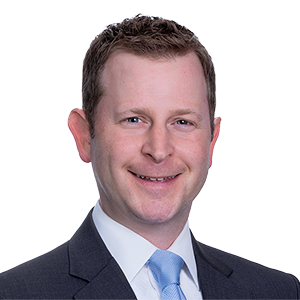On November 8, 2022, the US Supreme Court heard oral arguments in a case with far-reaching legal implications that could forever change beneficiary protections under the Medicaid program. In Health and Hospital Corporation of Marion County, Indiana v. Talevski (Case No. 21-806), a case involving a nursing home, the Court is considering its longstanding precedent that Spending Clause legislation permits Medicaid beneficiaries to bring individual lawsuits using 42 U.S.C. § 1983 to enforce their rights under the Medicaid statute.
Section 1983 has long been the key tool that has allowed beneficiaries to seek enforcement of provisions in the Medicaid program and has led to significant improvements and reforms in the federal-state partnership that is Medicaid. A Supreme Court decision that would prohibit lawsuits against state Medicaid programs under Section 1983 would not only overturn years of precedent, but effectively slam the courthouse door on all Medicaid beneficiaries. As of July 2022, more than a quarter of Americans were enrolled in Medicaid and CHIP, many of whom are children.
Ivanka Talevski, on behalf of her disabled father, alleges, in the Talevski case, that a county-owned nursing home violated his right to be free from chemical restraints involving overprescribing of psychotropic drugs and his rights to resident-transfer and discharge procedures, in violation of the Nursing Home Reform Act. Although Mr. Talevski died during the course of the lawsuit, the importance of its challenge remains. The Petitioners ask the Supreme Court to find that Spending Clause legislation must include express language providing a private right of action and that Section 1983 is not appropriate when other administrative remedies exist. The Nursing Home Reform Act provides the minimum standards of care nursing home facilities must meet in order to participate in Medicaid (42 USC §§ 1395i-3 and 1396r). The law does not include a private right of action.
After initially failing to get the case dismissed, the Indiana nursing home agency has appealed the case to the Supreme Court. While the district court dismissed the case for failure to state a claim, finding that there was no private right of action for nursing home residents under the Nursing Home Reform Act, the Seventh Circuit Court of Appeals reversed that decision, finding that the Nursing Home Reform Act provisions at issue "unambiguously confer individually enforceable rights on nursing home residents such as Gorgi Talevski" and therefore the rights were enforceable under Section 1983.
In granting cert, the Court specifically seeks to address the following question, among those under consideration: "Whether, in light of compelling historical evidence to the contrary, the Court should reexamine its holding that Spending Clause legislation gives rise to privately enforceable rights under Section 1983."
42 U.S.C. § 1983 provides that:
Every person who, under color of any statute, ordinance, regulation, custom, or usage, of any State or Territory or the District of Columbia, subjects, or causes to be subjected, any citizen of the United States or other person within the jurisdiction thereof to the deprivation of any rights, privileges, or immunities secured by the Constitution and laws, shall be liable to the party injured in an action at law, suit in equity, or other proper proceeding for redress, except that in any action brought against a judicial officer for an act or omission taken in such officer's judicial capacity, injunctive relief shall not be granted unless a declaratory decree was violated or declaratory relief was unavailable.
After learning that the Court decided to take up the important question of standing to sue, over 25 amicus briefs were filed by a variety of stakeholders. The amicus brief from Health Policy Scholars notes that "the historical record confirms that Congress has protected and enhanced beneficiaries' ability to bring such suits and that private enforcement under 42 U.S.C. § 1983 has become an integral part of Medicaid's structure." More specifically, Children's Health Care Providers and Advocates amicus brief recognizes the long reliance by children and families on Section 1983 to secure access to Medicaid's early and periodic screening, diagnostic, and treatment benefits (EPSDT), noting that "the EPSDT guarantees would be little more than empty promises" without Section 1983.
While the Medicaid statute on its own does not provide for a private right of action, individuals have used Section 1983 to enforce the provision of benefits conferred under the program. The Supreme Court has previously held that there are three factors for determining whether a federal statute creates private rights enforceable under Section 1983:
- Congress must have intended that the provision in question benefits the plaintiff;
- The plaintiff must demonstrate that the right assertedly protected by the statute is not so "vague and amorphous" that its enforcement would strain judicial competence; and
- The statute must unambiguously impose a binding obligation on the States.
In oral arguments that lasted over 90 minutes, the Supreme Court appeared less likely to restrain enforcement using Section 1983 than many legal commentators anticipated. In early questioning of counsel for the petitioners, the Justices focused on whether the Nursing Home Reform Act confers rights on beneficiaries. Justice Kavanaugh stated that the statute: "says rights. I mean, it says rights. It's a very uncomfortable fact for you that…the statute says rights over and over again." Similarly, Justice Kavanaugh referenced the Court's prior holding that the existence of an administrative remedy doesn't limit the ability to seek recourse under Section 1983. Justice Kagan stated that "once there has been found to be a statute with the character of giving rights, the presumption actually is in favor of 1983 because that's what 1983 is supposed to address."
Justices Alito and Sotomayor questioned counsel regarding the savings clause in the Nursing Home Reform Act, which provides that "The remedies provided under this subsection are in addition to those otherwise available under State or Federal law and shall not be construed as limiting such other remedies, including any remedy available to an individual at common law." Counsel for the Petitioner argued that the clause prevents use of Section 1983 because it is referring to statutes other than the statute containing the savings clause; while counsel for the Talevski family argued the section "means what it says" and therefore Section 1983 remains available to enforce the Act.
In response to questioning regarding the availability of private remedy through the administrative enforcement process, counsel for the Talevski family noted the limited remedies available and stated that "section 1983 was their last resort."
If the Supreme Court reverses course and limits private rights of action under Section 1983, beneficiaries would be reliant on the states to appropriately uphold beneficiary rights and self-police their programs, as well as rely on the Centers for Medicare & Medicaid Services to take enforcement action against states that may be out of compliance with Medicaid requirements. Between limited resources and enforcement priorities that fluctuate between administrations, a limitation of private enforcement rights will undoubtedly inhibit beneficiaries ability to protect their rights under the Medicaid statute.





